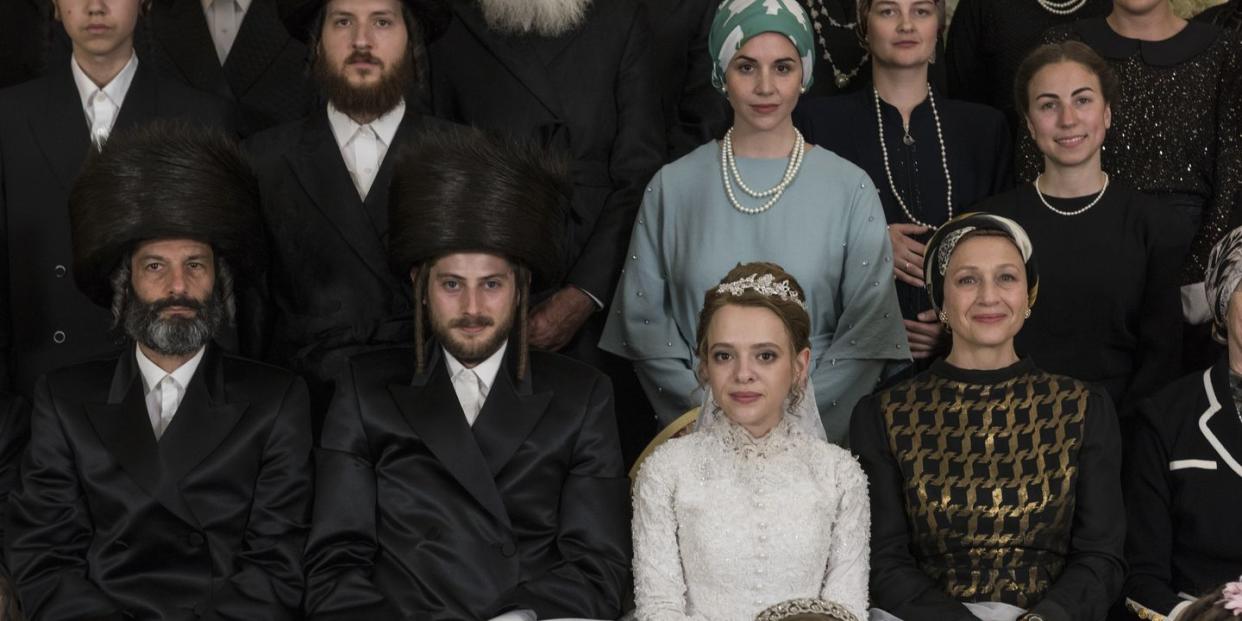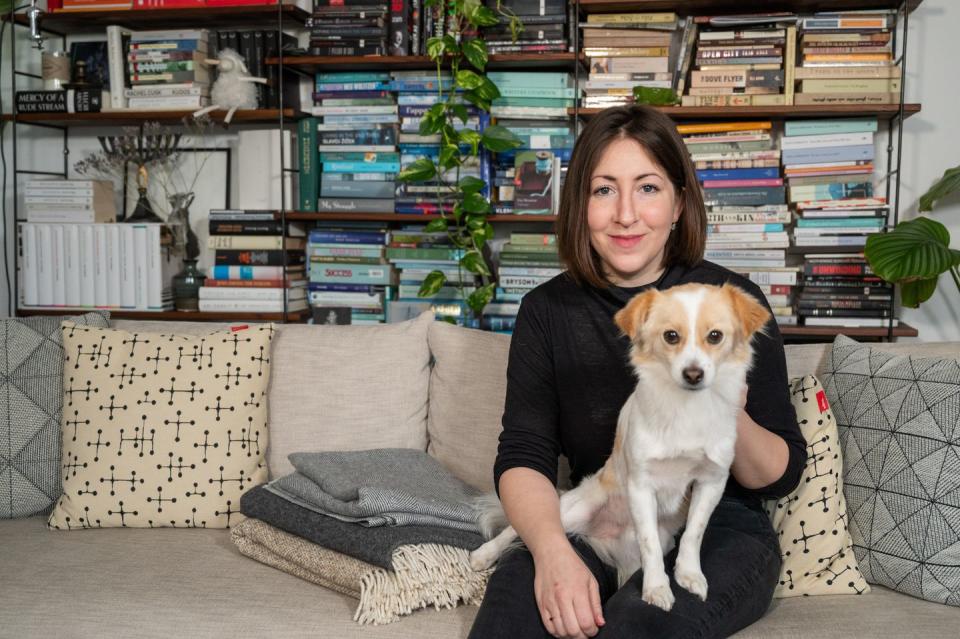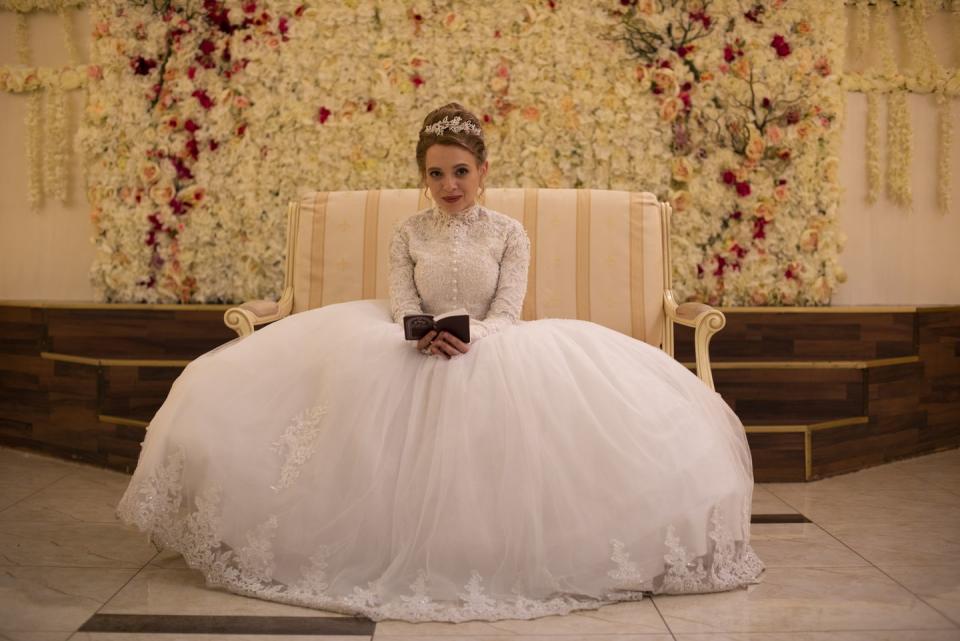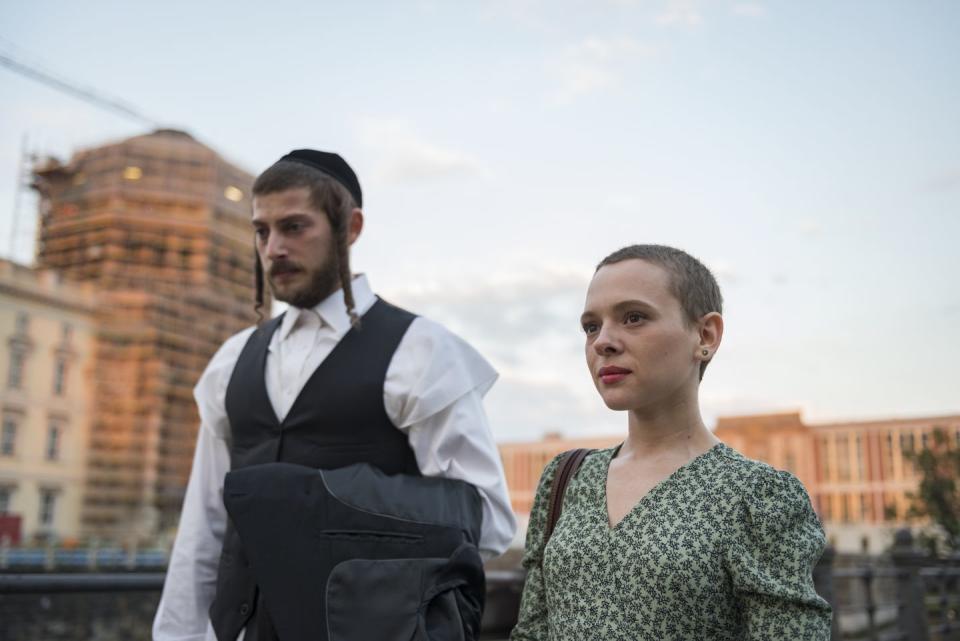The True Story Behind Netflix's ‘Unorthodox’ Is One of Courage and Triumph

In Unorthodox, Netflix’s latest miniseries, a young woman born and raised in Brooklyn’s tight-knit Hasidic Jewish community flees to Germany from her home and loveless marriage. However, her past life soon follows.
Based on Deborah Feldman’s 2012 memoir, Unorthodox: The Scandalous Rejection of My Hasidic Roots, the four-part show follows Esther “Esty” Shaprio (Shira Haas), a 19-year-old Satmar Jew living in Williamsburg, Brooklyn and trapped in an arranged marriage. Her marriage is on shaky ground, as a year has passed without consummation of the union, making the couple unable to start a family. When she reaches a crisis point, discovering her pregnancy on the same day that her husband asks for a divorce, Esty flees her home and community to fly to Berlin, where her mother has been living for years.
Like Feldman, who grew up in Williamsburg, Esty is raised in Williamsburg’s Hasidic Jewish community, a strictly traditional and ultra-orthodox branch of Judaism formed in Europe in the 18th century. The fundamental belief of Hasidism is “change nothing,” or continue to follow the same lifestyles that were followed when the group began. Hasidic Jews believe that the Torah, the five books of Moses, is the literal word of God.
Per the word of the Torah, gender roles remain traditional; women and men are frequently separated, particularly in worship and in school. Children attend private schools, where they spend much more time studying their religion than learning subjects taught in public schools, according to Forward. Arranged marriages are common, with most Hasidic Jews entering an arranged marriage after meeting only a few times before the ceremony, Haaretz reported. There is a heavy emphasis on starting a family quickly after the wedding, as the Torah instructs followers to “be fruitful and multiply,” making Esty’s inability to get pregnant during the first year of her marriage a serious problem within her community.
Hasidic Jewish communities are not only highly traditional, but they are extremely tight-knit, meaning that departure for a secular life is rare. Those who choose to leave the community are often shunned by their family, ostracized by their friends, and denied custody of their children.
“It takes an enormous amount of guts, savvy, and bravery,” former Orthodox Jew Lynn Davidman told The Cut with regard to leaving the Hasidic community. “They are taught that the outside world is dangerous, that they have to stick together because God chose them, and if they don’t follow God’s commandments, they will be punished terribly. They grow up with a tremendous fear.”

Divorce in this community is also very rare. When her husband asks for a divorce, a shocked Esty makes a plan to quietly flee. Upon her arrival in Germany, she has very few possessions to her name, little education, and knows virtually nobody in the country. She quickly befriends some students around her age at a music conservatory. However, trouble follows when her husband and his cousin, intending to drag her back to Williamsburg, come looking for her upon learning about her pregnancy.
Esty applies for a special scholarship to the music conservatory reserved for students from extraordinary circumstances. In the final episode, she auditions for a spot in the school, singing her grandmother’s favorite song as well as a Hebrew song from her wedding. The episode ends without showing whether she was offered the scholarship, but the reaction of the committee seemed overall positive, with each member visibly moved. Though the outcome remains open-ended, the series ends on a hopeful note, suggesting that good things are yet to come for Esty.
Although Feldman played an informal role in making the miniseries, as shown in Making Unorthodox, the short documentary depicting the creation of the show, these events in Berlin are where Esty and Feldman’s stories diverge. In the documentary, the filmmakers explain that only Esty’s life in Williamsburg is based on Feldman’s life, while her life in Berlin is a fiction entirely.
“We had a lot of discussions about when can you sacrifice accuracy and when not,” Feldman explained to the New York Times. “We agreed you can sacrifice accuracy as long as it doesn’t impact the narrative."
Like Esty, Feldman was born into the Satmar Hasidic community in Williamsburg. According to ABC News, Feldman was raised by her grandparents, who are Holocaust survivors. Her father was mentally ill; meanwhile, her mother abandoned her, left the community, and later came out as a lesbian.

Feldman entered a loveless arranged marriage at seventeen. She also suffered vaginismus, making consummating her marriage or getting pregnant very difficult, which led to tension with her husband and his family.
“The greatest social misfortune in this community is infertility,” Feldman told Electric Literature. “It is grounds for divorce. Women who cannot produce children are relegated to the lowest possible position in society, they are seen as completely useless, purposeless, valueless.”
Like Esty, Feldman did eventually get pregnant. She gave birth to her son in 2006, then moved with her husband and child to Yonkers, New York, where she studied literature at Sarah Lawrence College. With support of faculty and friends from Sarah Lawrence, she left her husband and the Satmar community in 2009, taking her 3-year-old with her and moving to Manhattan. Like Esty, she did move to Germany, though not until 2014.

Now 33, Feldman remains in Berlin with her son. She released a second memoir, Exodus, detailing her life after she left the Hasidic Jewish community. Although Feldman’s first memoir and the series diverge in plot, they both illustrate the conservative and oppressive lives that modern-day Hasidic women often lead, and how the rejection of their community can be extremely difficult, yet extremely freeing. As Feldman told NPR, both Esty’s story and her own story are about emancipation from the chokehold of the past.
"I will lay the past to rest so that I can also have a life ..." Feldman said. "So that my grandparents survived for a reason — not so that we could suffer."
You Might Also Like

